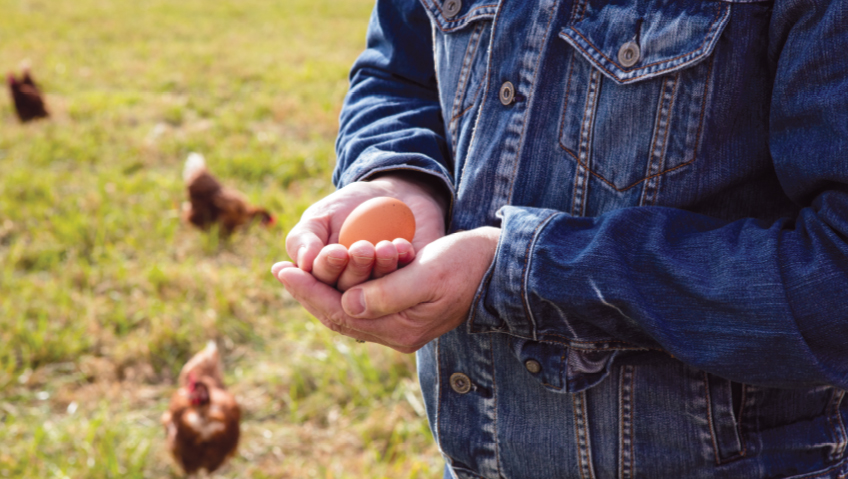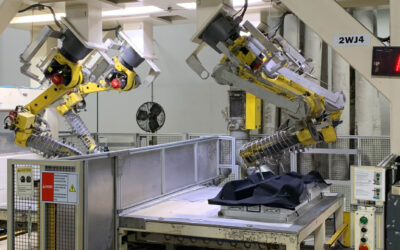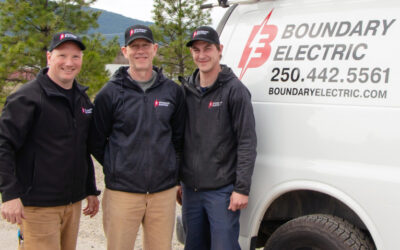It’s not often you meet someone with a PhD in Avian Ethology — the scientific and objective study of bird behavior — but it’s evident within moments of speaking to John Brunnquell, President and CEO of Egg Innovations, that he’s definitely an expert in his field. His organic, free-range egg production company is growing steadily with exciting new products arriving this year, as it aims to establish itself as a leader and model in the ethical treatment of chickens in order to produce a healthier, sustainable egg.
“A lot has been going on at our company,” says Brunnquell, including the recent acquisition of Peckish, a company that produces premium hard-cooked eggs found in the grab-and-go aisle of groceries and convenience stores. Described as a “reimagining” of the hard-cooked egg, Peckish adapted the way eggs are cooked so the yolk is creamier, and offers two eggs in a packet with a set of five different flavors or spices for dipping.
“That’s the innovation part of Egg Innovations,” says Brunnquell of the product set to unroll across the nation in upcoming months. “We want to be anything but a commodity, and Peckish is more of an idea place.”
Although there are other free-range companies in the business, Egg Innovations is the “grandfather,” with about 30 years of experience, although still not a household name. Brunnquell says it’s time to tell their story a little bit better, including the reason behind the company’s core premise.
“In the free-range space, we’re advocates that every animal on this Earth is hardwired to certain behaviors,” he says. “In the case of the chicken, it’s hardwired to perch, to scratch, to socialize. When you let it do these things, good things happen.”
Brunnquell allows those good things to happen with his 65 layer barns housing 20,000 birds each in Indiana, Kentucky and Wisconsin, where the birds have access to the outdoors every day. The unique barns feature dedicated perch areas, scratch areas and pasture areas where the animals are free to be themselves and thrive in the process.
“What it really shows is when you treat the animals well and you really are all in on welfare, you unlock their genetic potential,” he says. “These animals aren’t stressed or pushed to these levels. They were just showing us when you treat them right, this is what they can do.”
Egg Innovations truly enjoys its leadership role in this space, including being at the front end of launching a regenerative egg via regenerative agriculture, a practice that looks to fight climate change and improve the planet’s ecosystem.
“We were always passionate about healthy pastures for our hens to get outside and enjoy sunshine and shade, and crawl and explore underneath things and on top of things and perch,” explains Brunnquell. “When we really began looking at regenerative agriculture, it occurred to us we have over 1,200 acres of pasture under our management to work with.”
The company is now adapting its pastures to regenerative environments with carbon sequestration to promote healthy, improved soil that can, in a small way, be part of a solution to the climate change issue.
This past year, the onset of the pandemic added its own unique challenges to the already challenging nature of farming. All companies in some manner changed their practices for COVID-19, says Brunnquell, whether it was limiting the number of workers, using masks, or practicing social distancing. Egg Innovations, determined to maintain close relationships, has managed to safely maintain connections with the farmer community that produces its eggs. Although the pandemic has raised safety concerns for the farmers and those relationships, Brunnquell has ensured his farmers were healthy, their eggs had homes, that they continued to receive checks, and they could help meet demand for the market in spring when there was hoarding.
“I would say the thing we’re proudest of this year is just innumerable stories of individual interactions between our employees and staff and the family farmers that we work with,” he says. “The more this crazy world gets automated, the more we’re in the people business. There’s just nothing that replaces a handshake, or in today’s world, a Zoom call. There’s always a real person at the other end, and it’s easy to lose sight of that. This past year was a very trying time on relationships.”
In that way, one of Egg Innovations’ biggest successes was staying focused on finding commonalities and reinforcing relationships for the long term. Video technology is useful and necessary right now, but Brunnquell says it was also easy to get out and talk with farmers and have a physical presence while maintaining a safe social distance. Although video has indeed allowed the company to increase points of contact — you can talk to someone in Philadelphia at 10am, and then someone on the west coast at 11 — nothing replaces face-to-face. “The human side is where the real story is,” he says.
Going into 2021, a significant portfolio expansion includes moving into a full line of institutional products with frozen eggs, liquid eggs, and powdered eggs. “We really want to give people who are passionate about animal welfare an opportunity,” says Brunnquell. “The more choices on how to exercise that decision, the better. We’re very proud of the corner that we’re taking over.”
There is always resistance to change in an industry, however, and the biggest one involves money. Brunnquell says he understands that the largest players in the United States are going to be slow to move to what Egg Innovations does, reluctant to undertake a massive investment in cages, then moving to cage-free, and possibly all the way to free range and pasture.
“We also recognize that in this environment we have 10 percent unemployment, we have people who need to buy 89 cent eggs,” he says. “However, we also recognize that more and more consumers are a lot more demanding and have expectations about issues beyond just food.”
Brunnquell’s experience growing up involved finding the cheapest food for a family’s tight budget. Today, people are much more aware of what’s happening on the planet and how animals are being taken care of, which greatly influences personal and family food purchasing habits.
“This generation is smart enough to know that you can take care of animals and still produce them in an economic manner. Hopefully we’re part of an example of how to do that, how to pay a living wage to our farmers, how to do it efficiently by vertical integration and still get it out to the consumer at an affordable price.”
Within the industry, Brunnquell sees owners older than himself who are in the stages of turning over the business to children in their forties. While the patriarch might claim cage-free is a “little bit silly,” and perhaps doesn’t understand why people would pay for it, sons and daughters who are stepping into those leadership roles say they’re looking forward to the day when they get to make those decisions – and they will be making changes.
“Cage-free is going to take the dominant part of the conversation, but it’s about the rising tide raising all boats,” says Brunnquell. “There’s going to be a set of consumers who say going cage-free is nice for those birds, but they’re still confined and they’re still not going outside. I want something better. So, free range and pasture are expanding as well.”
Free range and pasture offer numerous benefits for the birds, including no severe feather-pecking, low mortality rates, and birds outperforming caged flocks by two percent on average.
Brunnquell understands consumers have different expectations than they did 20 years ago, and are willing to pay a reasonable amount more as long as it’s legitimate. The problem, he says, centers around a vast misunderstanding of the different terminology used.
“We need to continue to educate consumers. In our research, 83 percent of consumers who hear cage-free think free range. They hear cage-free, but they think those birds go outside. As that education process continues, we want to be there again with the diversity of products that we can [use to] bring the cost down and bring the variety up so that it’s a lot easier for people to integrate animal welfare into their normal purchasing habits.”
This year, Brunnquell is also looking forward to the company’s rebranding, as it traditionally flew under the radar with about 85 percent of its sales under private labels. “While we had a brand, we weren’t putting a focus on it and really telling our story.” In November of last year, the company initiated a relaunch of the Blue Sky Brand and is beginning to tell that story again of animal welfare and what farmers can do with the hens and the eggs.
“We’re very uniquely positioned as the only company in the nation that has the business chops but also the scientific and academic background,” Brunnquell says. “We really do understand why a hen doesn’t go out in the middle of the day, but goes out late in the afternoon, and why they exercise a variety of behaviors. We want to share that story with consumers that there’s a brand out there that’s going to take away a lot of the noise and try to really make it clean.”













